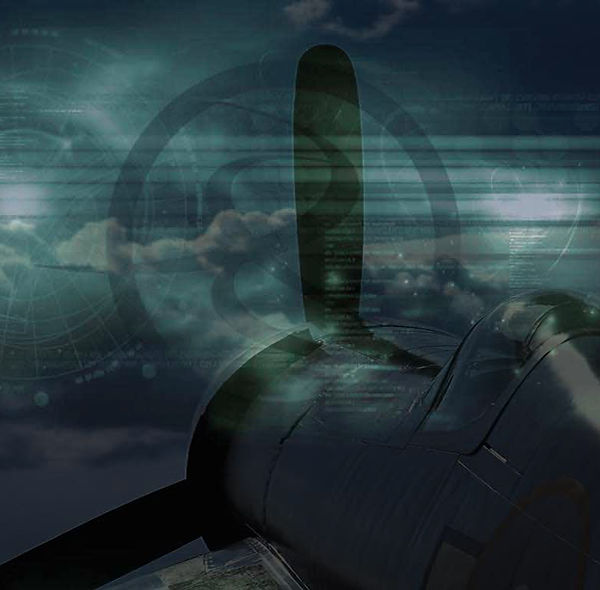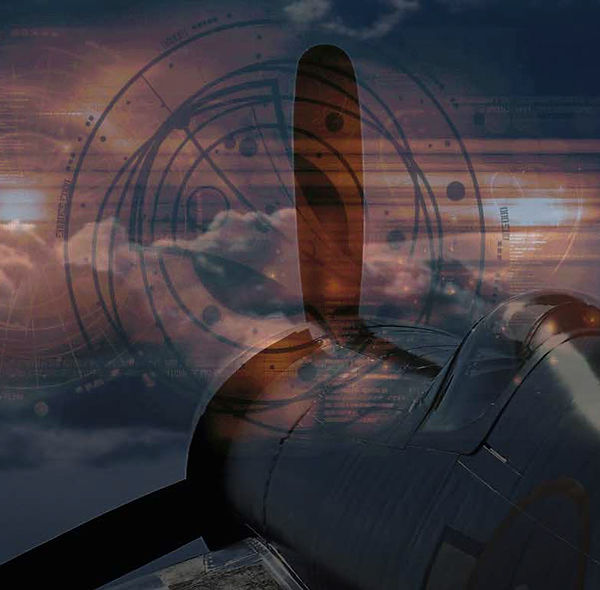
Hold your pointer on a tab in the menu on top of the page to view and handle the sub menus.



SITEMAP jdsf4u.be
ANCHOR button
The mighty and mythical F4U Corsair, from prototype to Super Corsair, has to be one of the most impressive fighter aircraft of the World War 2. A legend ... probably the most successful fighter design in the history of military aviation!
Big and very powerful, its surprising bent wing design, special birdcage cockpit and large engine and fuselage gave it a very distinctive look.
The first prototype was delivered in 1940, and series production began in 1942. Production ends in1953 with 12571 planes being built, the longest production period of any US fighter.
The F4U fighters were in active service during the World War 2, the Korean War, the First Indochina War, Algerian War, the Suez Crisis, Tunisian incident and finally the Football War between El Salvador and Honduras which ends in 1969.
The F4U Corsair remains in front line service with the US Navy and the US Marines, the Royal Navy, the French Aéronaval, the RNZAF, The Argentine Navy, The airforce of El Salvador and the Hondurian airforce, far longer than any of its contemporaries.
The F4U history is not well known compared with other World War 2 fighters. It operated in the Atlantic and the Pacific theatre, few people know that... Perhaps the looks are the reason, or the knowledge of the company’s Vought, Goodyear and Brewster that produced this powerful monster ? The real reason is probably that the plane entered rather late in World War 2.
F4U Corsair, is the best fighter there is ...It's rugged...It's a workhorse...You can use it for ...everything, and it's effective ... You can shoot anything off or out that plane and it still goes ... !!"
Whatever, this aircraft deserves recognition and respect for many reasons. Not only as a dog fighter but also as a quality bomber, the F4U Corsair could lift almost the payload of a B-17 in bombs ..., making it a powerful ground attack aircraft. That the F4U Corsair could perform as a fighter and a bomber is due to the pilots and to the aircraft for its rugged construction which enables it to take severe punishment from enemy guns and still get home.
The ability of the F4U to "dish it out" is a familiar story. Navy and Marine pilots also know its ability to "take it".
XF4U-1 : Prototype Corsair F4U,Vought Company, one airplane produced, BuNo 01443
F4U-1 : the first production version, carrier-based fighter,Vought Company
F4U-1A : modified canopy, pilot's seat raised 0.2 m, Modified F4U-1 (unofficial), Vought company
F4U-1B : version for RN or US designation of aircraft supplied to the UK under Lend-Lease
F4U-1C : version with four-wing mounted 20-mm cannon, fighter bomber,Vought company
F4U-1D : fighter-bomber version, external fuel tank, with Pratt & Whitney Wasp R-2800-8W water-
injection engine , entered service in April 1944, carrier based fighter,Vought company
F4U-1P : photo-reconnaissance variant of the F4U-1, Vought company
F4U-1WM : test aircraft, Wasp Major Pratt & Whitney engine, Vought company
F3A-1 : Brewster Corsair version of the F4U-1,carrier based fighter
FG-1 : carrier based fighter, Goodyear Company
FG-1A : Goodyear Corsair version of the F4U-1A
FG-1E : Goodyear Corsair version with radar, night fighter variant of the FG-1D, proposed version
FG-1D : Goodyear Corsair version of the F4U-1D, carrier based fighter, bomber version
FG-1K : Goodyear Corsair drone oriented version , proposed version by the company
FG-2 : Goodyear variant of the FG-1 version
FG-3 : FG-1D with turbo-supercharged engine, Goodyear company
XF4U-2 : Night Fighter Conversion, converted from F4U-1, BuNo 02153, one aircraft converted
F4U-2 : Vought night fighter conversion of the F4U-1 and the F4U-1A, AN/APS-4 radar in a radome on the right wing
XF4U-3 : experimental high-altitude interceptor fighter with sequential turbocharger, converted from F4U-1A with
BuNo 17516 and 49664, BuNo 02157 was planned to be converted from from F4U-1 but never executed.
XF4U-3A : The first XF4U-3 prototype was called the XF4U-3A, and it was converted from a F4U-1A, BuNo. 17516
XF4U-3B : The F4U-1A, BuNo. 49664, was fitted with a Pratt & Whitney R-2800-14W powerplant
with water/methanol power boost and with the turbo charger installed, it became the XF4U-3B
XF4U-3C : F4U-1, BuNo. 02157, was the third aircraft converted to the XF4U-3C proto type based upon the
XF4U-3 standards, but it was subsequently destroyed in a crash and did not participate in the program
F4U-3 : high-altitude fighter, first prototype flown post-war, Vought company,
XF4U-4 : prototype of the F4U-4, first 5 production F4U-4 planes, contracted by BuAer, Vought company
F4U-4X : prototype of the F4U-4, converted from F4U-1A with 2 stage , 2 speed supercharger engine, 2 planes, Vought
F4U-4 : version with Pratt & Whitney Wasp R-2800-18W or Pratt & Whitney Wasp R-2800-42W with
four blade propeller, increased armor, 127-mm rockets added, carrier based fighter, bomber version
F4U-4B : photoreconnaisance version, Vought company
F4U-4C : variant with four 20-mm cannon, Vought company
F4U-4E : night-fighter version with APS-4 AI radar, Vought company, This aircraft was refitted with
four 20mm M3 cannons, proposed version, never entered production
F4U-4K : experimental drone, proposed version from the Vought company
F4U-4N : night-fighter version with with the AIA-1 also named AN/APS-6 radar type, never entered production,
proposed version from the Vought company.
F4U-4P : photo-reconnaissance variant, Vought company
FG-4 : Goodyear version of the Vought F4U-4 version, was never produced
Design numero 354 Vought : converted F4U-1 is the only experimental transition trainer version, Vought
XF4U-5 : prototype of the F4U-5, converted from F4U-4, 3 planes converted with BuNo 97296, 97364 and 97415,Vought
F4U-5 : Pratt & Whitney Wasp R-2800-32W engine, Vought company
F4U-5N : version is distinguished by its two-foot diameter radar dome in the leading edge of the right wing
F4U-5NL : this version did fly missions in their intended night fighter role, winterized version, Vought company
F4U-5P : tactical reconnaissance variant of F4U-5, Vought company
XF4U-6 : low-altitude variant with Pratt & Whitney Wasp R-2800-18W engine, converted F4U-5N with BuNo 124665,
Vought company
X-AU-1 : see XF4U-6, Vought company
F4U-6/ AU-1 : corsair version with Pratt & Whitney Wasp 2760-hp engine, low level attack version, Vought Cie
F4U-7 : final production version, Pratt & Whitney Wasp R-2800-18W engine version with 2760-hp, French AF
XF2G-1 : Prototype F2G Corsair variant, converted from FG-1, 7 planes converted (BuNo 13471,13472,14691,
14692, 14693, 14694 and 14695)
F2G : Goodyear Super Corsair, the design was centered around the Pratt & Whitney R-4360
wasp Major 28 cylinder, four-row, air-cooled radial piston engine
F2G-1 : land based fighter with the Pratt & Whitney R-4360 Wasp Major 28, Goodyear company
F2G-1D : Goodyear fighter-bomber version of the F2G-1with the Pratt & Whitney R-4360 Wasp Major 28
F2G-2 : Goodyear carrier based fighter, follow up of the F2G-1, with more carrier-friendly equipment
Corsair Mk I : Fleet Air Arm designation of F4U-1, standard wing version, carrier based fighter, Vought Co
Corsair Mk II : Fleet Air Arm designation of F4U-1A, clipped wing version, carrier based fighter, Vought Co
Corsair Mk III : Fleet Air Arm designation of F3A-1D, clipped wing version, carrier based fighter, Brewster Co
Corsair Mk IV : Fleet Air Arm designation of FG-1D, clipped wing version, carrier based fighter, Goodyear Co
-
F4U Corsair Site Home
-
-
-
-
-
-
-
-
-
-
-
-
-
-
